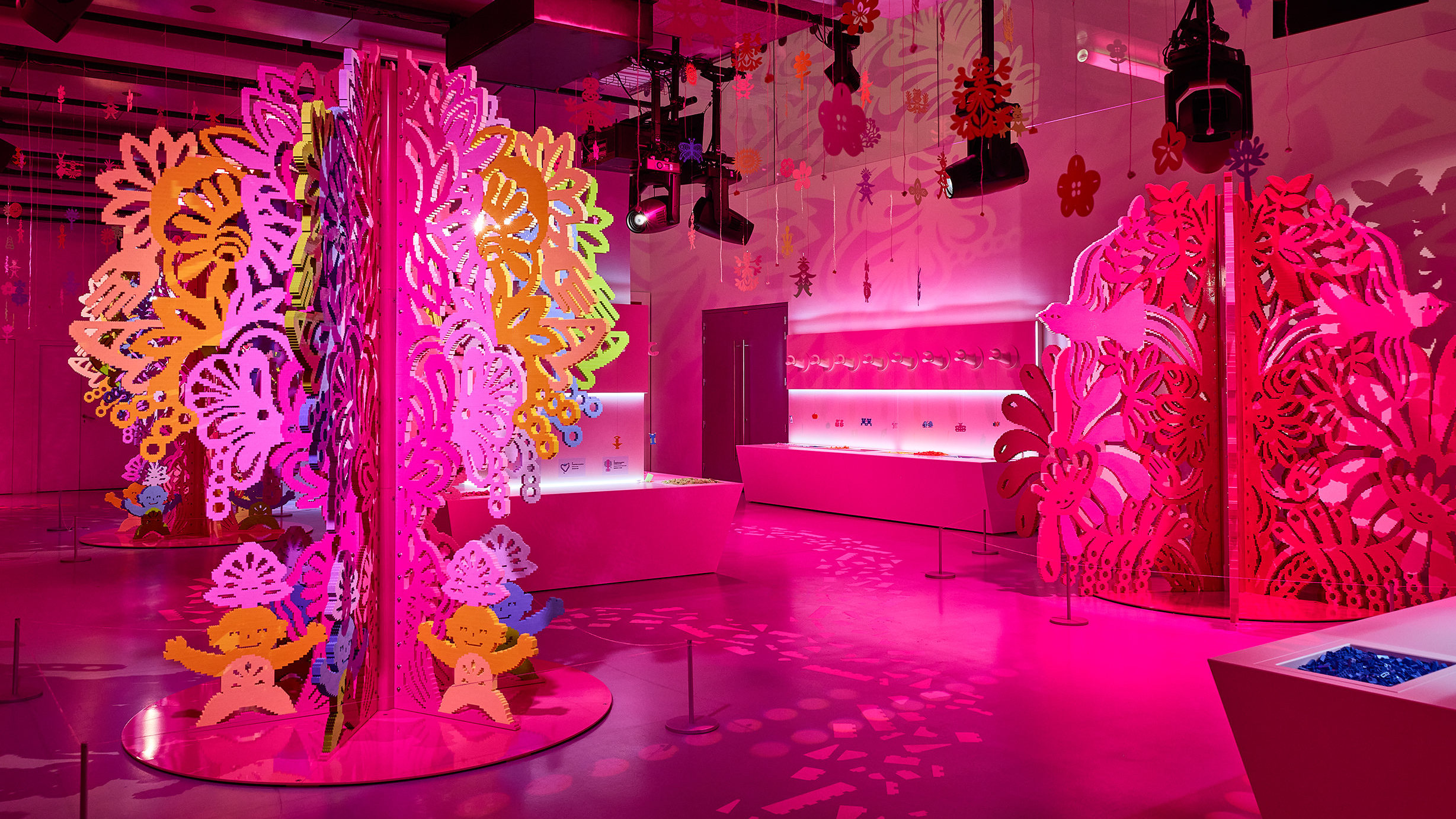
Behind the grand façade of La Gaîté Lyrique, a former theatre-turned-digital experience centre in Paris’ 3rd arrondissement, is a new installation by the Lego group. The first Superpower Studios brings together the work of three contemporary artists, overseen by Lego’s global VP of brand development Alero Akuya, and Colette co-founder-turned-creative consultant Sarah Andelman.
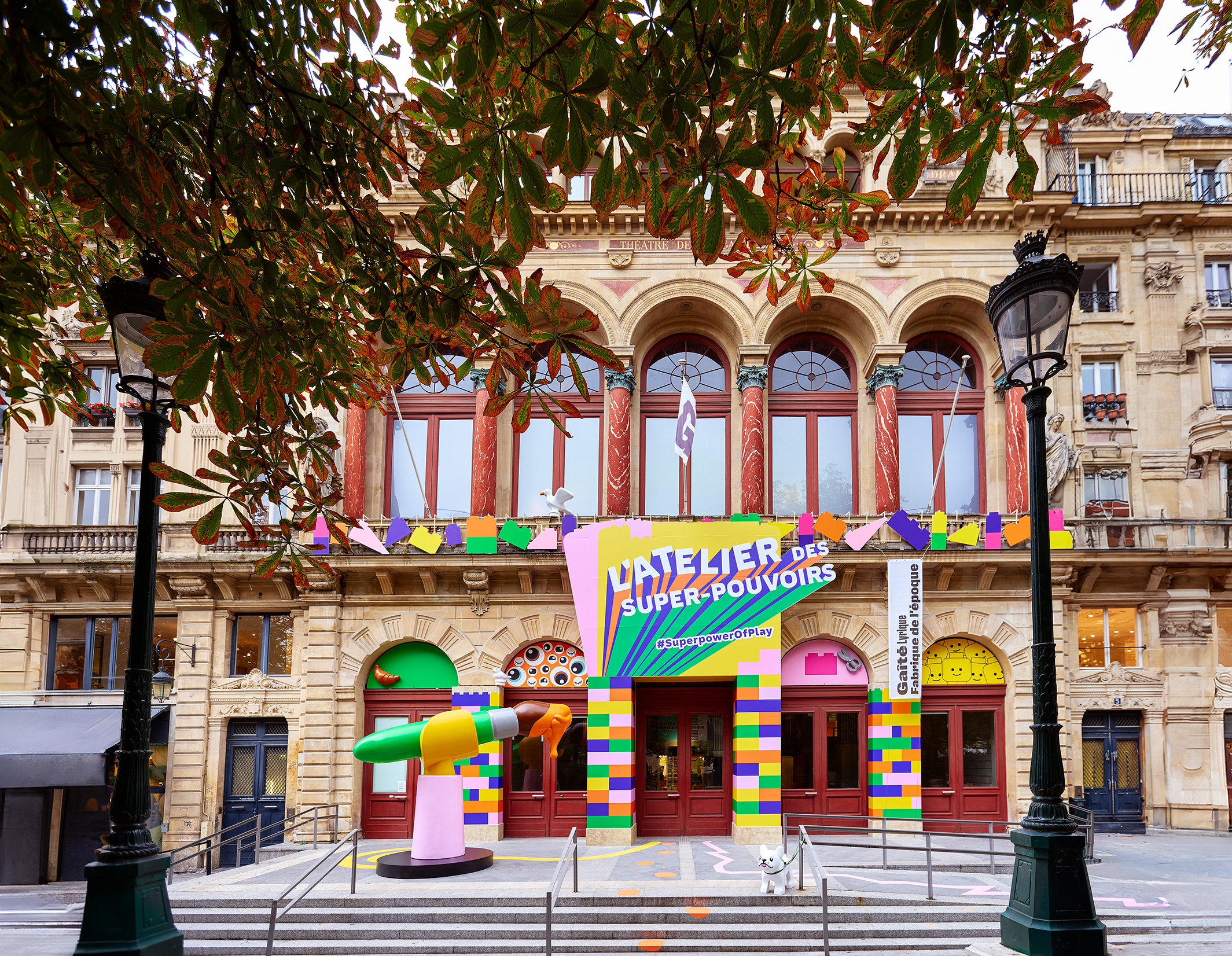
First and foremost, this is a show for the kids, carefully assembled to cater to a child’s point of view and born from a series of play workshops held at the Lego House in the company’s Danish hometown of Billund. Lego is serious about play, and creative collaboration, and these aspirations are becoming more and more evident as the company reaches out to embrace creatives from all spheres around the world.
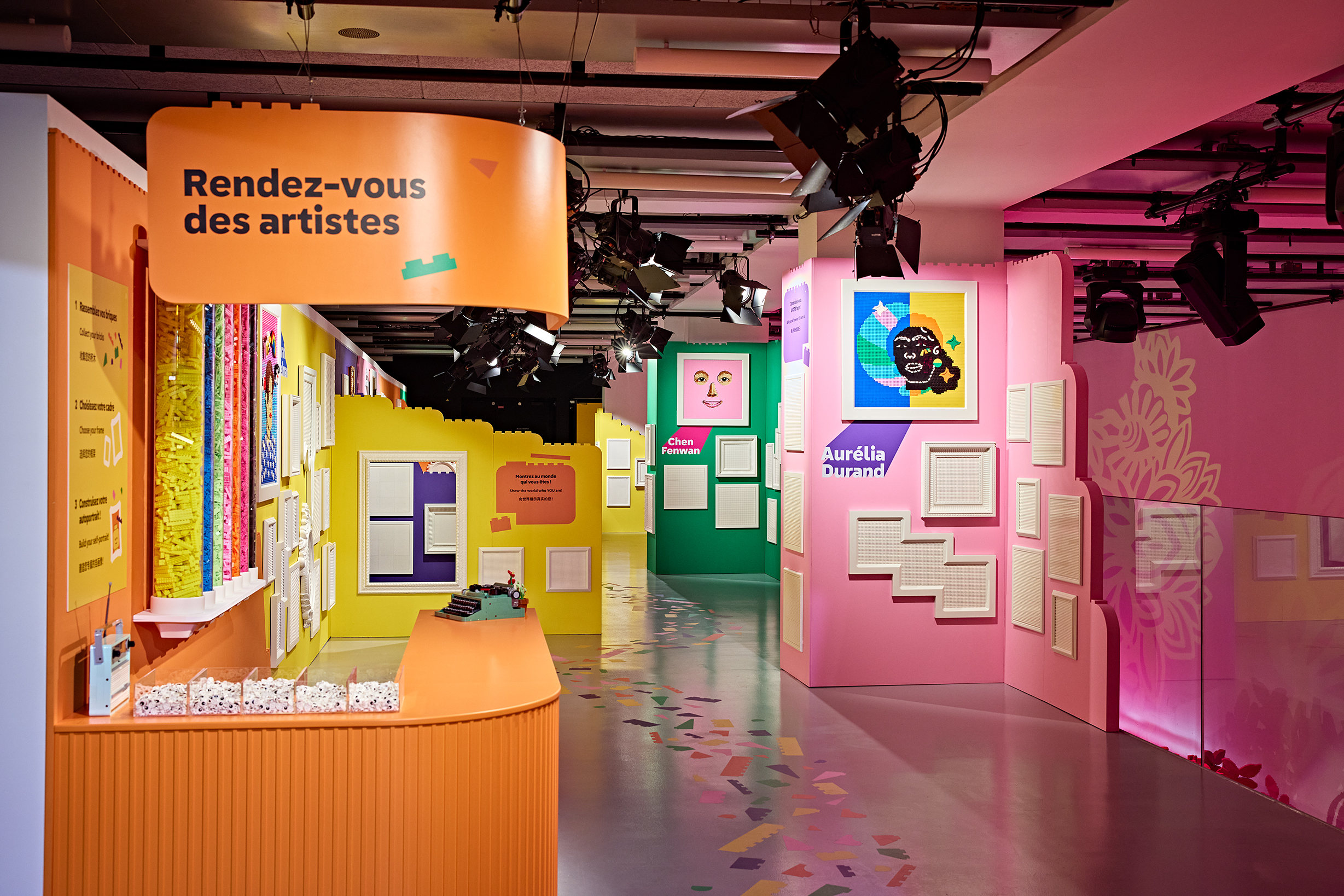
Its ‘Rebuild the World’ campaign, launched in 2019, continues to influence how the company approaches its audience, young and old. In recent years, we’ve noted collaborations with the likes of Dara Huang, Yinka Ilori and Camille Walala, giving the humble Lego brick a totemic role in all kinds of creative endeavours.
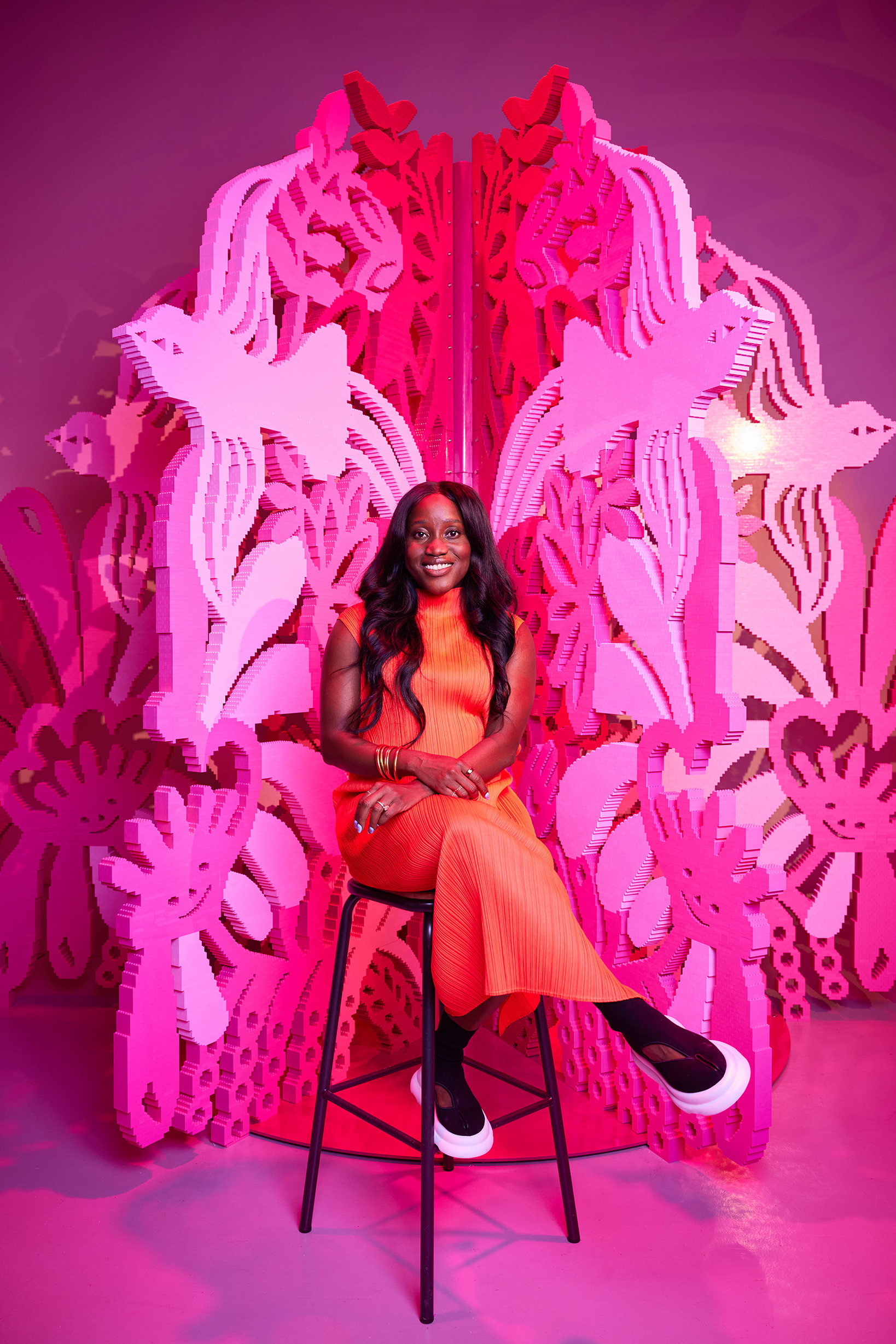
One reason for Lego’s rising stock among the creative community is the influence of Akuya. A former long-termer at Nike, where she was senior brand director of Olympics, Athlete and Purpose Marketing in North America, Akuya is a magnificent and enthusiastic spokesperson for the company. ‘It’s probably the most experiential brand in the world – so how do you demonstrate that at scale?’ she says, adding that ‘there’s always a wow factor with Lego. It’s about creative problem-solving.’
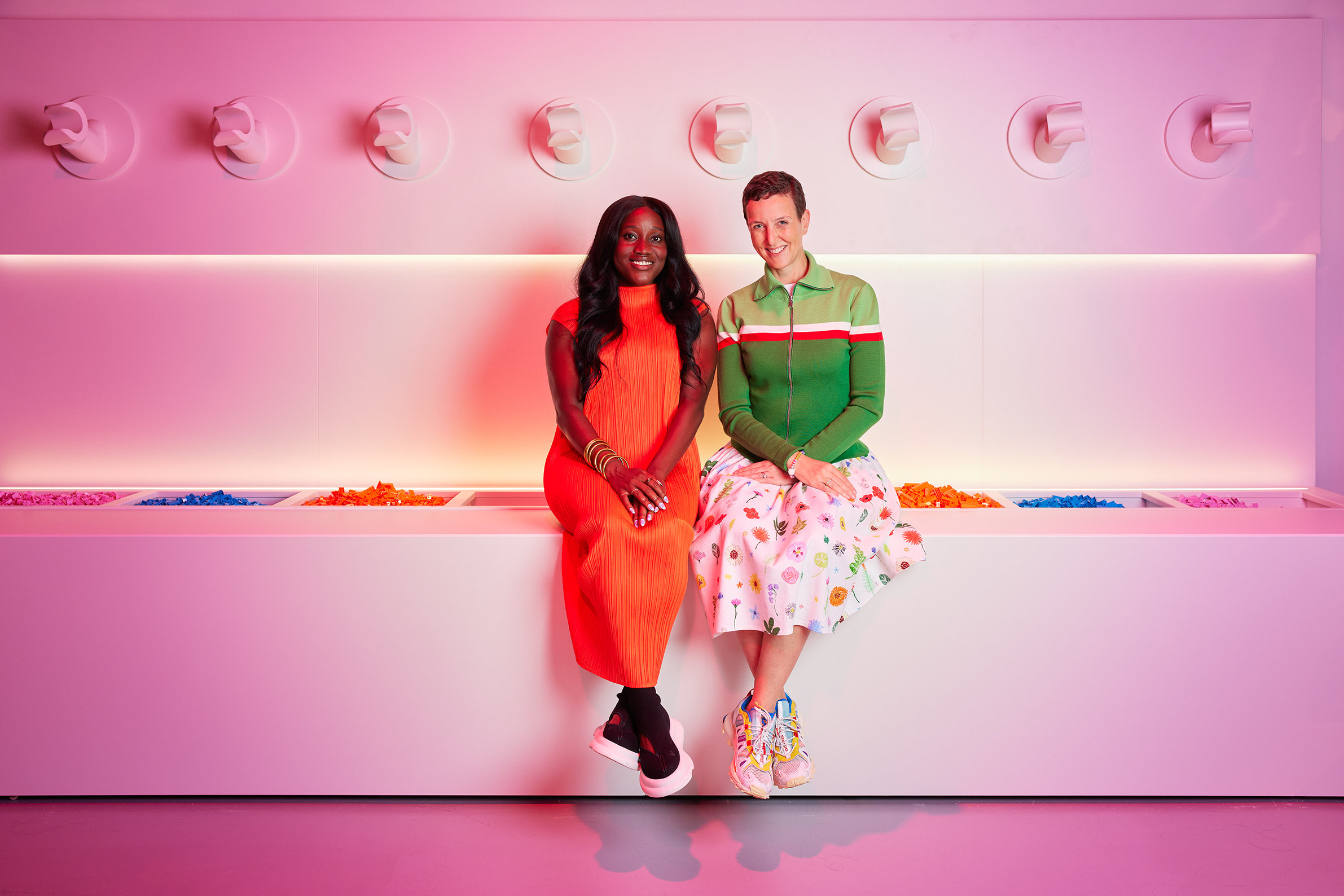
More importantly, the project demonstrates Lego’s universal engagement. For the ambassadors, Akuya explains that ‘we wanted global representation, as well as people who have worked with children and communities. Play is a source of social inclusion – that was very important to us.’ To this end, the three chosen artists cross cultures as well as methodologies and approaches.
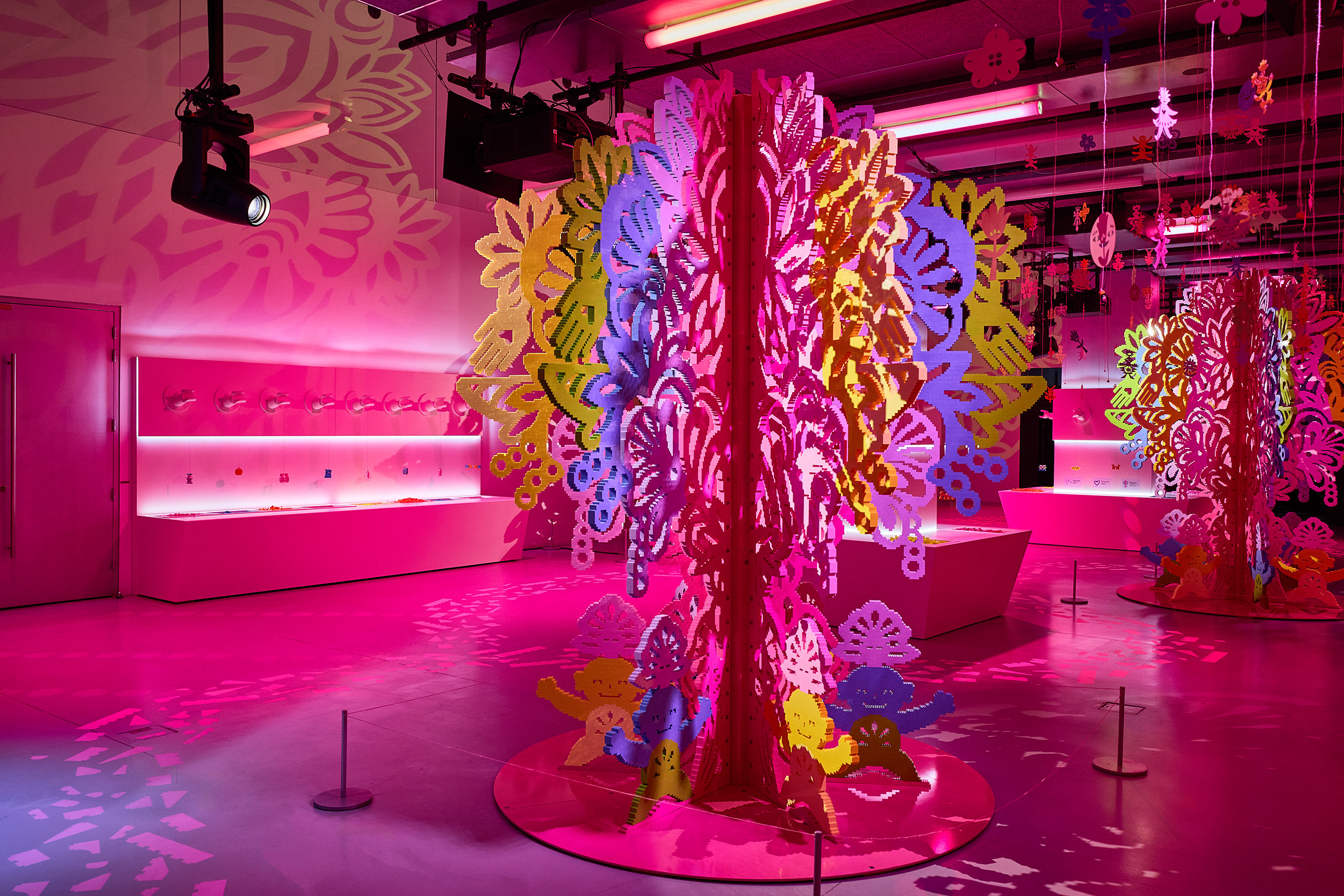
All were briefed to create something that ‘reimagined traditional norms’ for a gallery space – hands-on interaction is firmly encouraged at Superpower Studios. Most importantly, the installations are free and aimed squarely at families, addressing the company’s recent research that shows that 40 per cent of families around the world ‘lack access to adequate or safe spaces to play and 76 per cent of parents believe children have less time to play’.
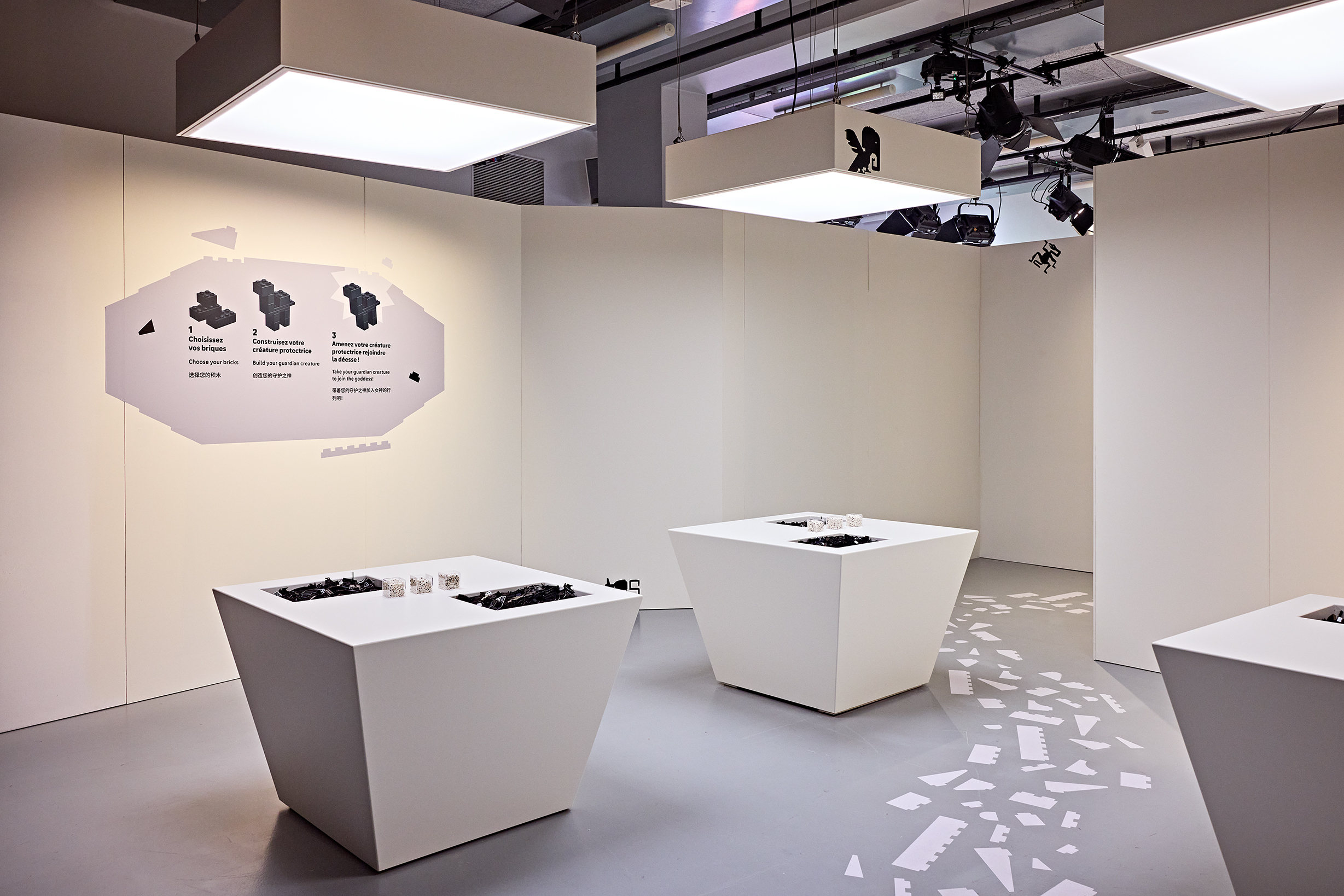
It's play, but it’s also taken very seriously by the Danish company. Founded in 1934, with a name that famously derives from the Danish phrase to ‘play well’, Lego's plastic blocks have been an integral part of the modern world since 1949. Now a global behemoth, with a net profit of DKK 13.1bn ($1.9bn) in 2023, Lego also has a clutch of ultra-high-profile licence agreements and a continuous flow of new ideas, innovations and products.
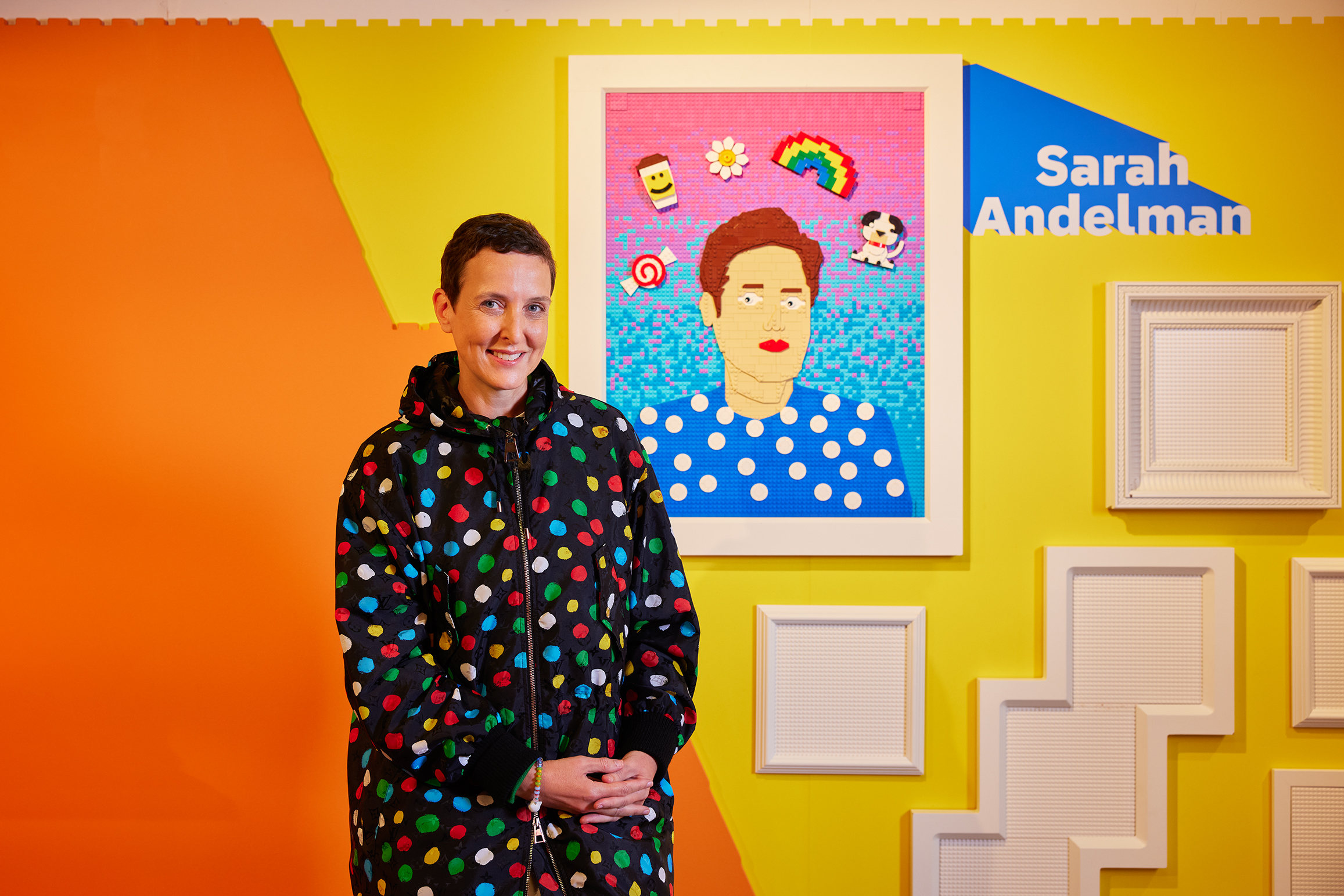
The Superpower Studios start with a gallery space, a spread of blank stud-board canvases on which visitors can create their own portrait. ‘It means you are an artist as well – you can participate right from the start,’ says creative advisor Andelman. She has parlayed her love of storytelling into four installations, starting with this gallery space and progressing through worlds created by each individual ambassador. ‘Sadly, there’s no gift shop,’ she says, revealing her retail experience. ‘I really tried though,' she adds wistfully. Parents might be thanking her.
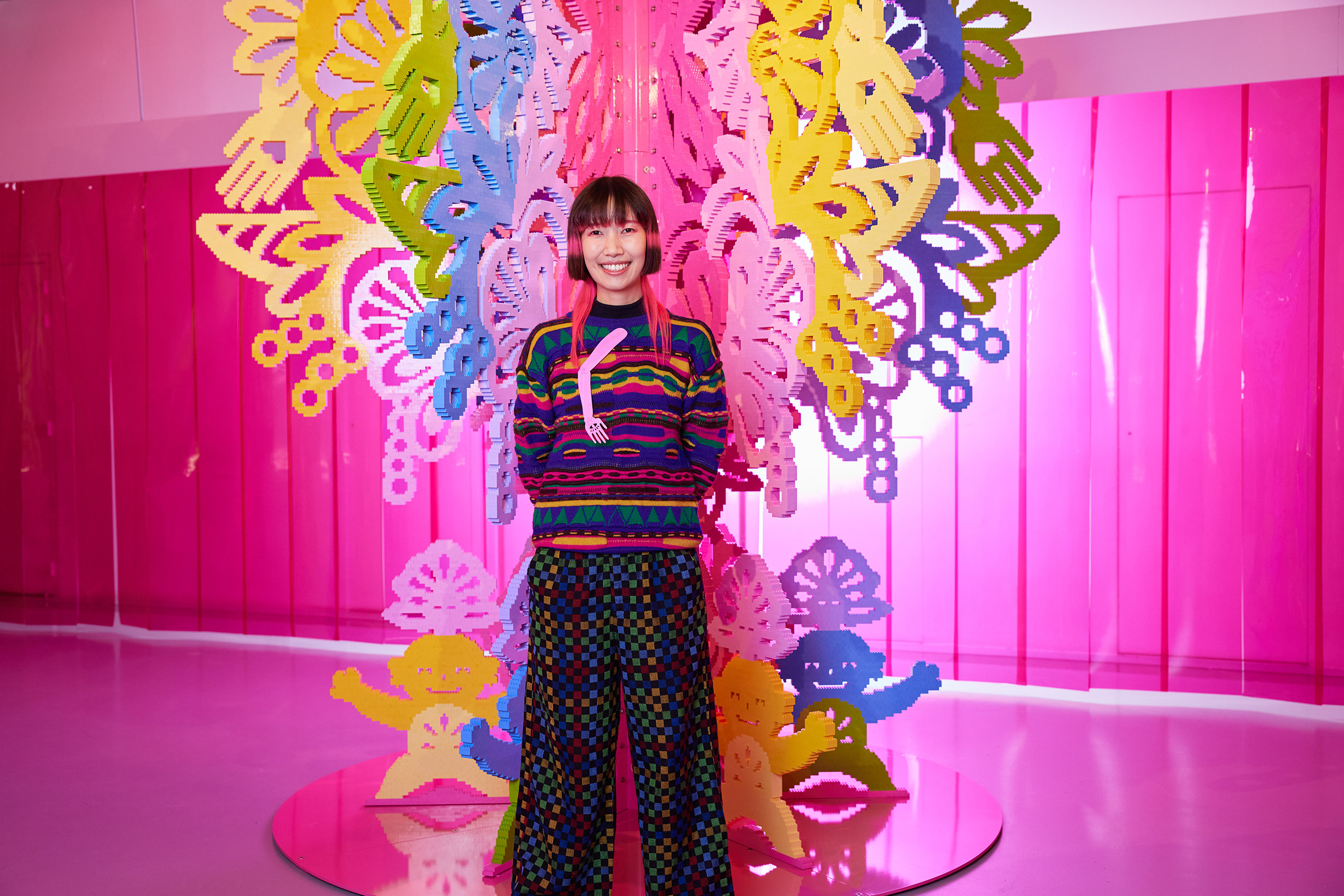
It's hard to imagine how to monetise Chinese artist Chen Fenwan’s installation. A series of large Lego sculptures mimicking the forms, figures and creatures she makes from her paper-cut artwork, the room is bathed in shifting patterns of light. This ‘Forest of Wishes’ combines traditional art form with a place from Chinese folklore, all filtered through the little bricks’ abilities to shape-shift into any form you like.
‘When I was a little kid, I couldn’t afford Lego,’ Fenwan tells us. ‘I got my first set when I was a teenager.’ As a self-taught artist, Fenwan has created her own style of paper cut, painting on special paper and working with the power of the silhouette. ‘Paper cutting is about omission – the shadow must be a part of the work,’ she says, ‘it’s an art about light.’ Luckily, it’s also a world of colour, with pink and other pastels dominating the large space (a smell of warm polymers also permeates everything – few other brands are so culturally, technically and practically wedded to the use of plastic in perpetuity).
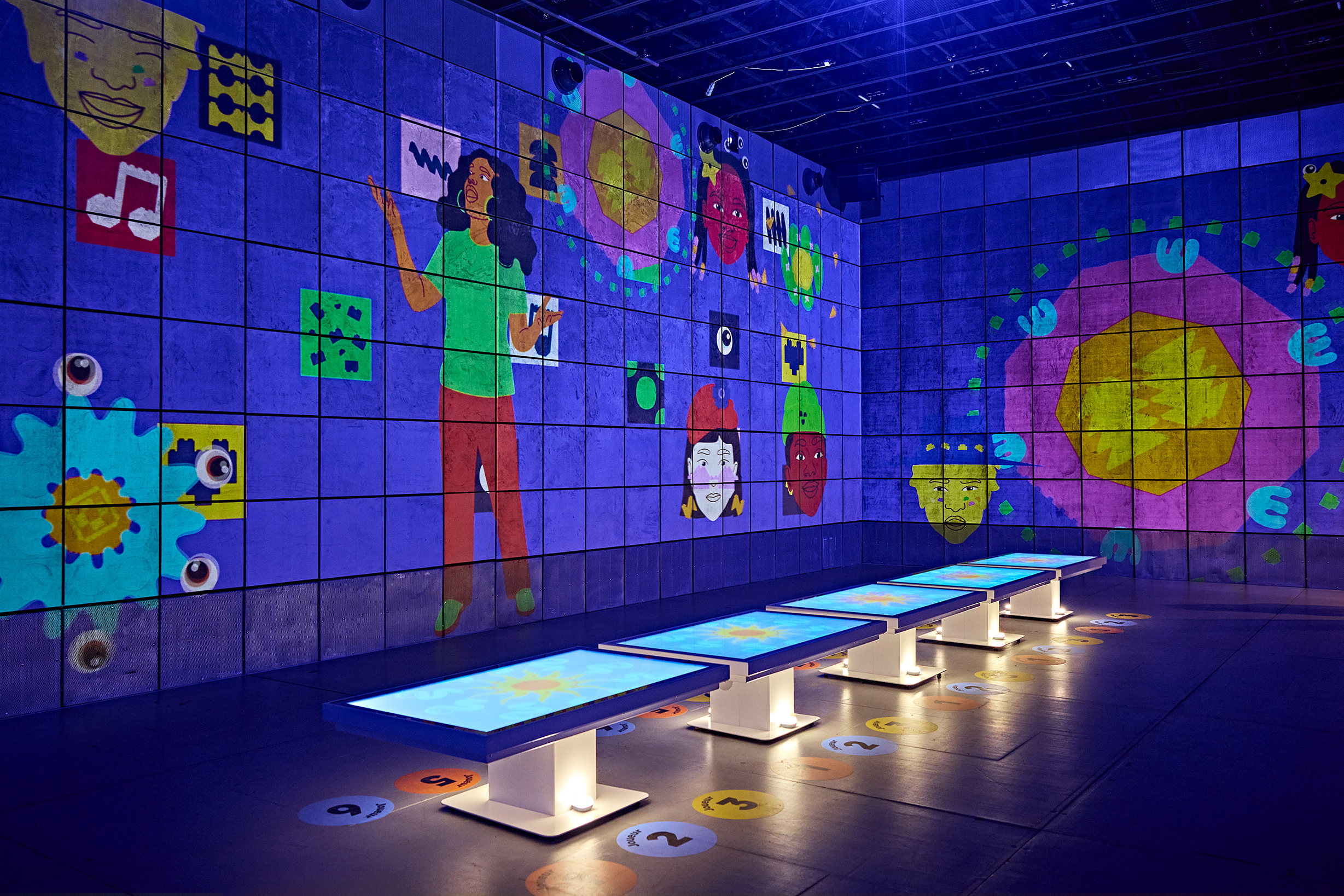
A pair of double doors leads into Aurélia Durand’s space, the ‘Remix Room’. Another self-taught artist, Durand studied product design in France and Denmark before becoming an illustrator, teaching herself animation in order to bring her vibrant, bold drawings to life. Of all the installations, it’s Durand’s that puts play closest to its heart, even if children won’t actually be touching any Lego blocks at all.
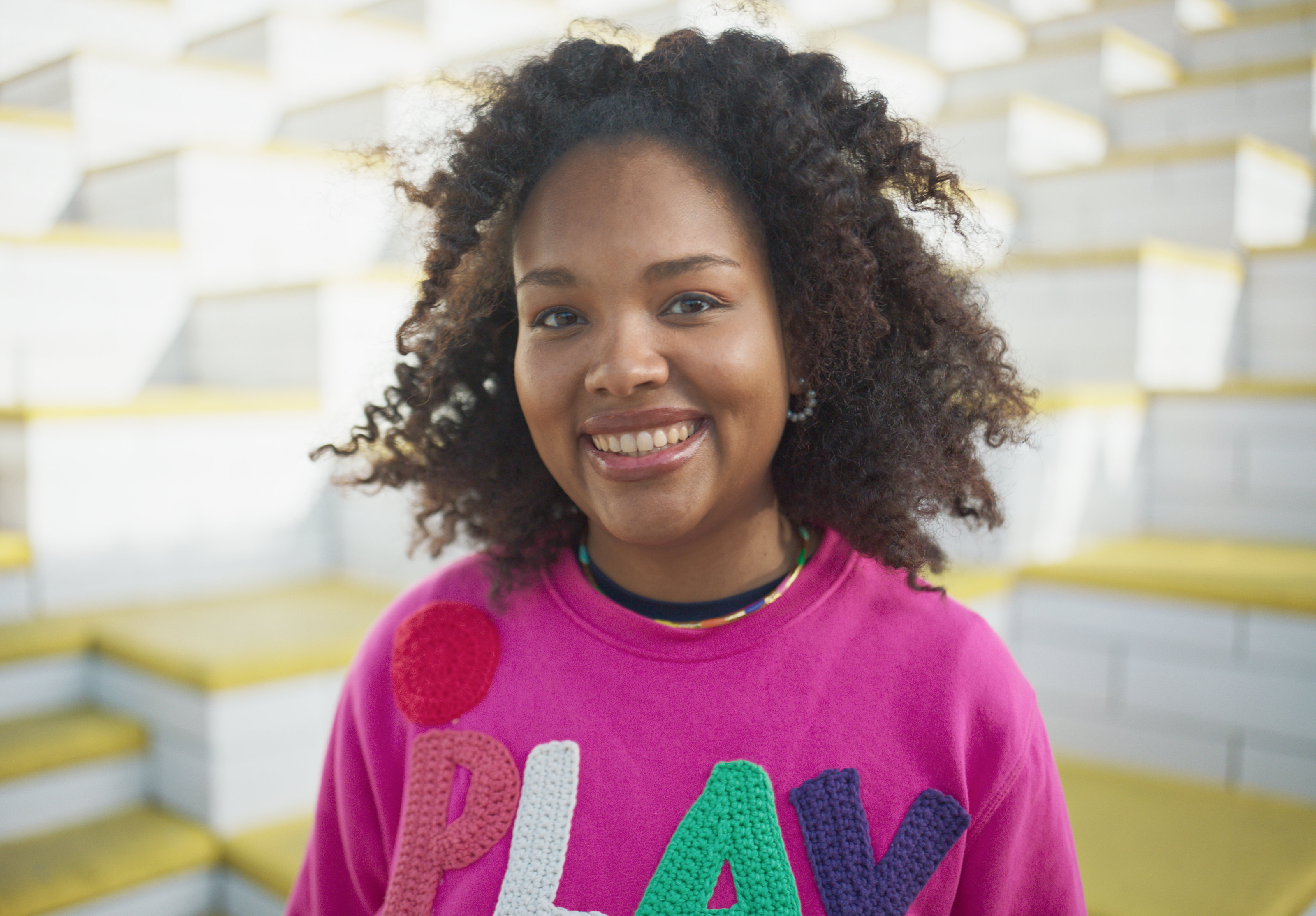
The tall, rectangular room is swathed in a grid of screens, with a row of touchscreen tables arranged in the middle, set at a child-friendly height. On these, a series of simple mini-games can be played, each of which encourages collaboration with your opposing number.
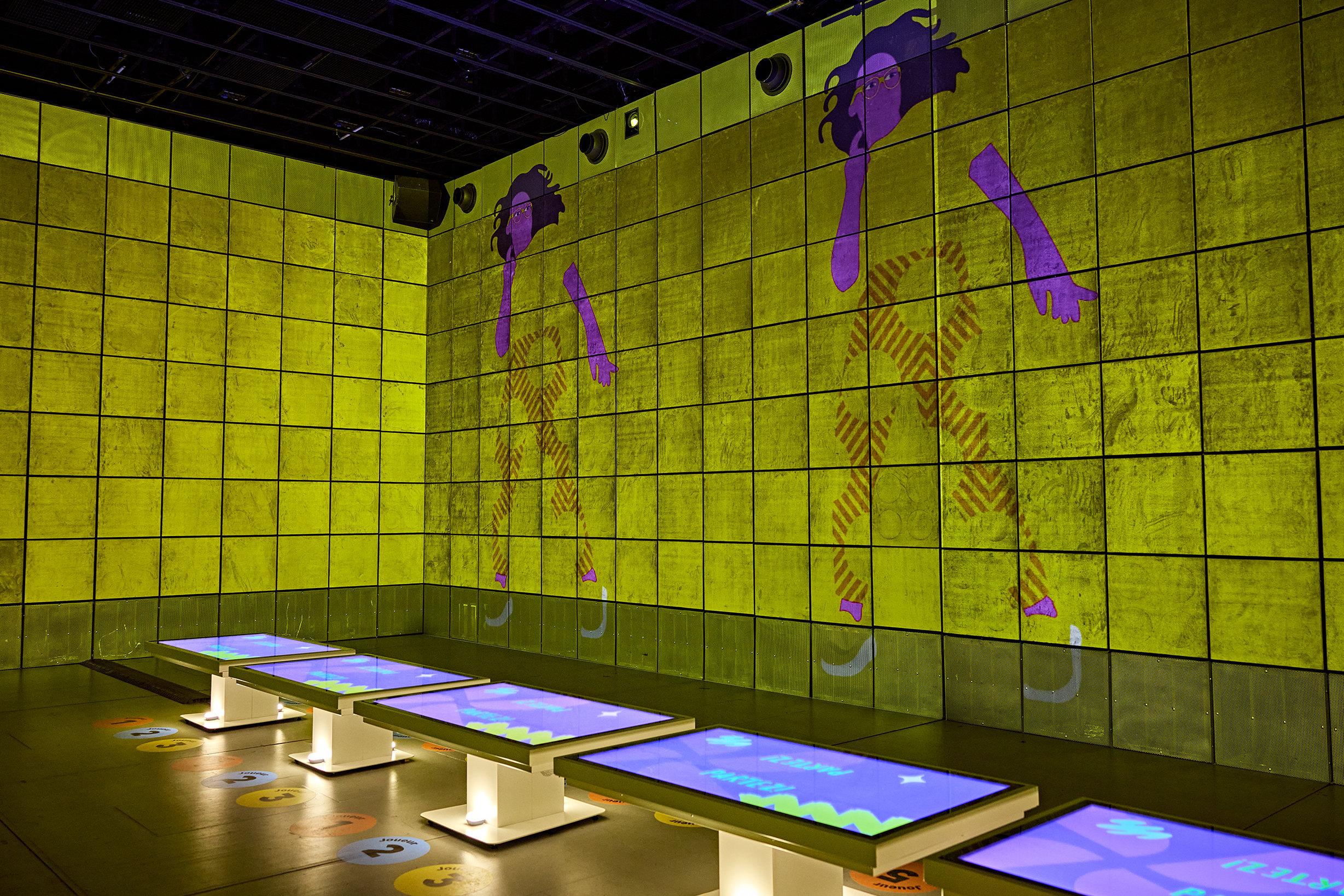
Durand’s artistic style carries through to every surface. Her work, which includes illustrating Tiffany Jewell’s best-selling This Book is Anti-Racist, is a perfect fit for the brand. ‘My work is about colour, joy and playfulness – these things are the DNA of Lego,’ she says. ‘As a child, Lego stimulated my creativity. I played with it for hours – it’s a major influence from my childhood.’
During a research trip to Billund, Durand noted the social power of play. ‘Play makes you grow as a person – I was inspired by the collaborative process [of the children in the workshops]. It’s important not to lose the social link. Children need to build with others.’
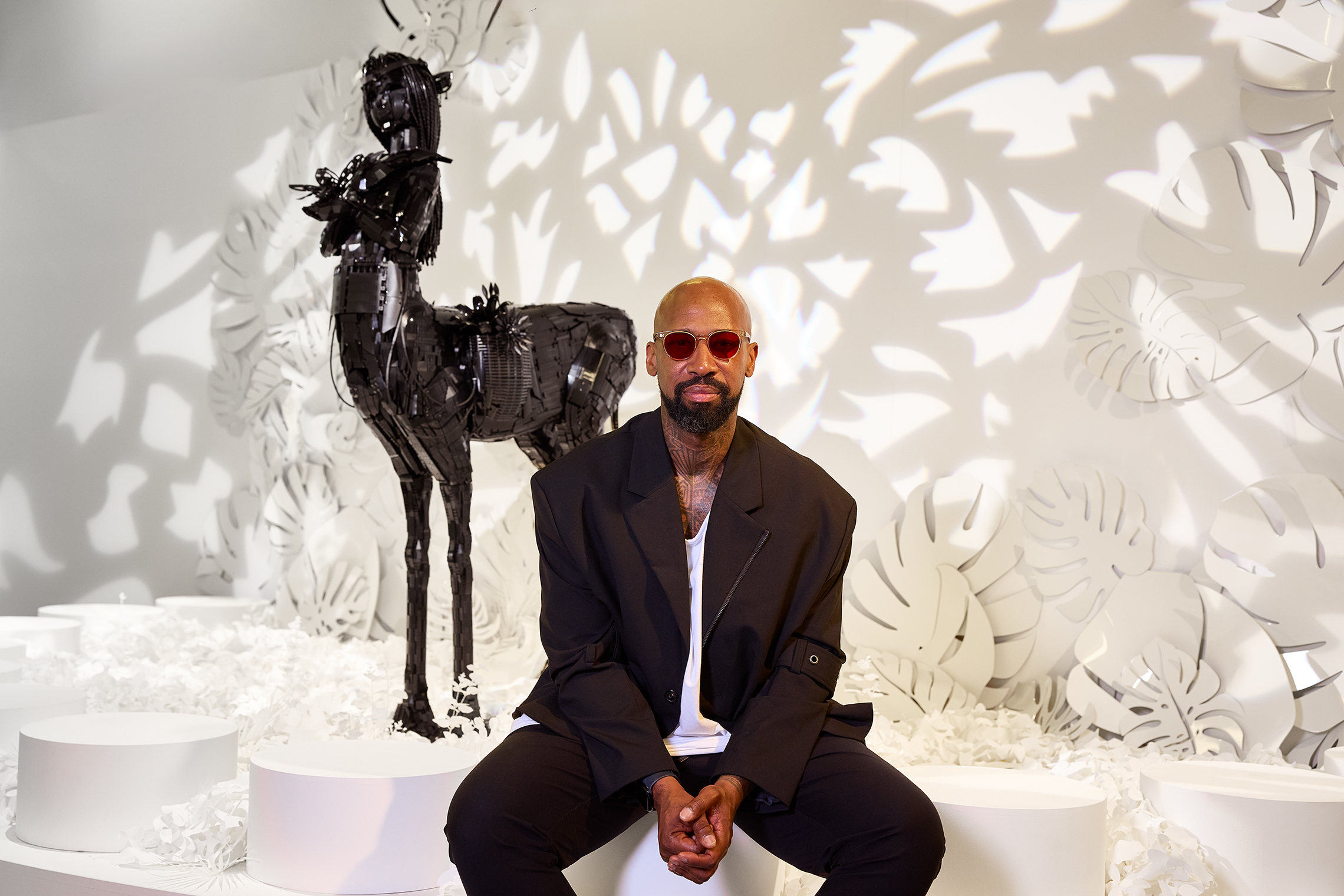
Ekow Nimako is a Ghanaian-Canadian artist, musician and novelist, the only one of the three ambassadors who had previously worked with Lego. Nimako’s sculptures frequently use black bricks to create elaborate Afro-Futurist forms, drawing on mythological creatures and science fiction visions. His installation at Superpower Studios, ‘The Mythical Maze’, would be a fearsome experience for smaller, more timid children, a plastic jungle with piped-in wildlife noises and scattered imagery from his own work.
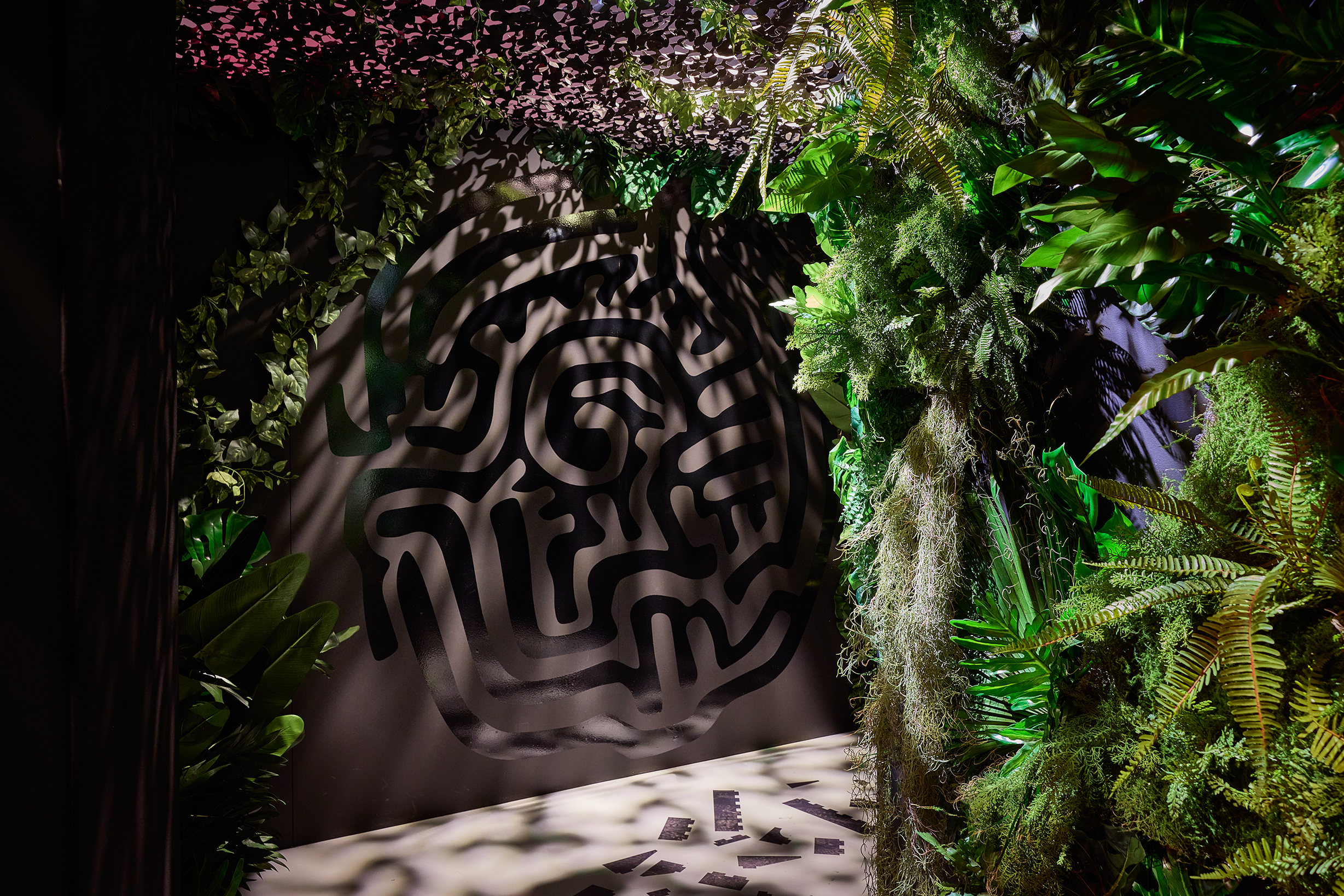
Like the others, Nimako played with Lego as a small child but then rediscovered it. ‘I became a musician, but then at art school I dabbled in Lego again – it got me back into that world,’ he says. ‘I also discovered that people had Lego-based careers.’ Nimako didn’t have a formal relationship with Lego until 2022, but for many years before that, his work used the bricks as a primary material.
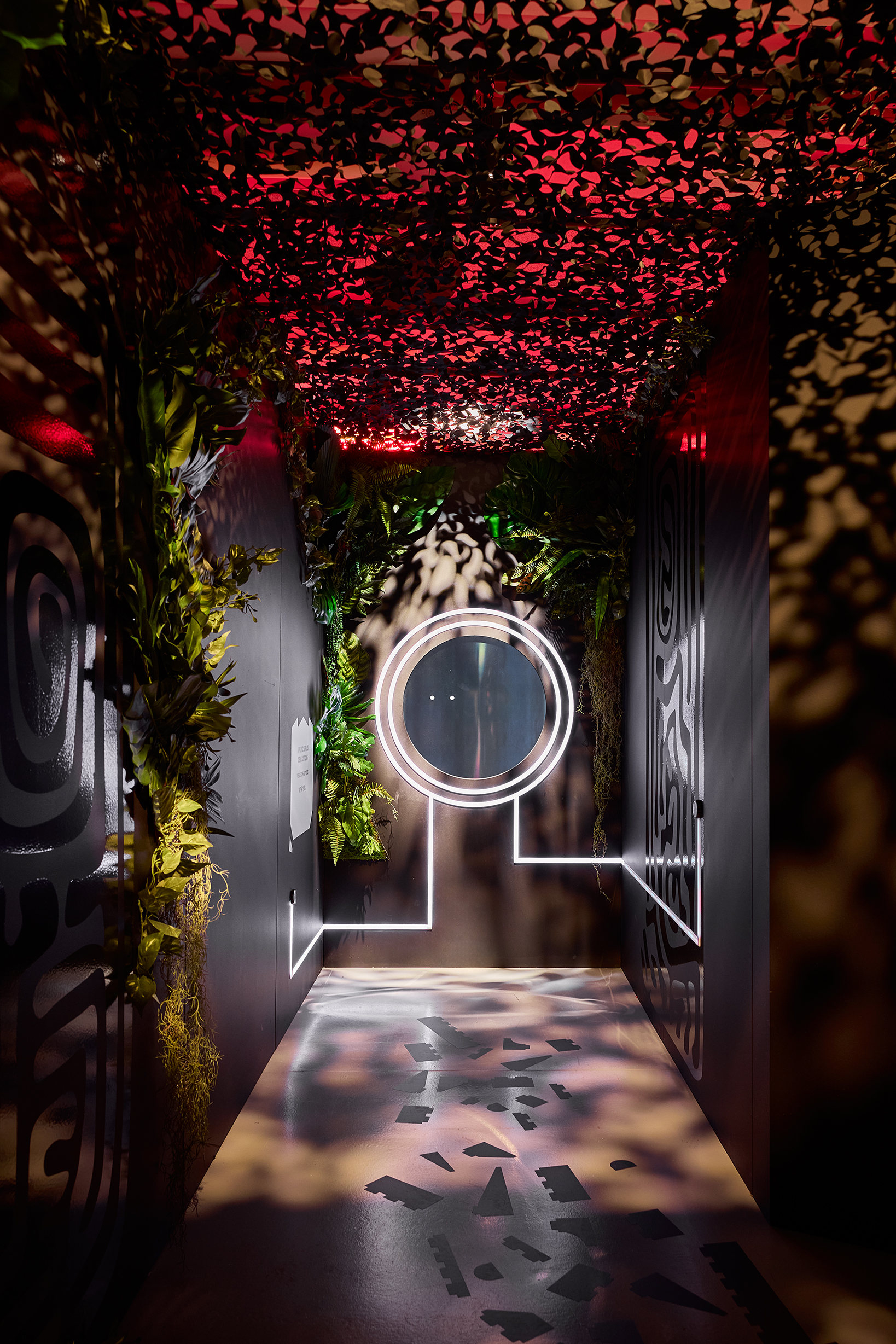
‘Lego play is all about problem-solving,’ he says. ‘Play doesn’t have rules, really – it’s such a perfect material. Repurposing things is what I do. At heart, I’m a found-object artist – I would always see things contained within other objects.’
The exhibition also makes a bold statement about representation. ‘Lego is progressive,’ Nimako says. ‘It’s important that different cultures click together. Getting my work out there impacts kids, particularly racialised kids.’
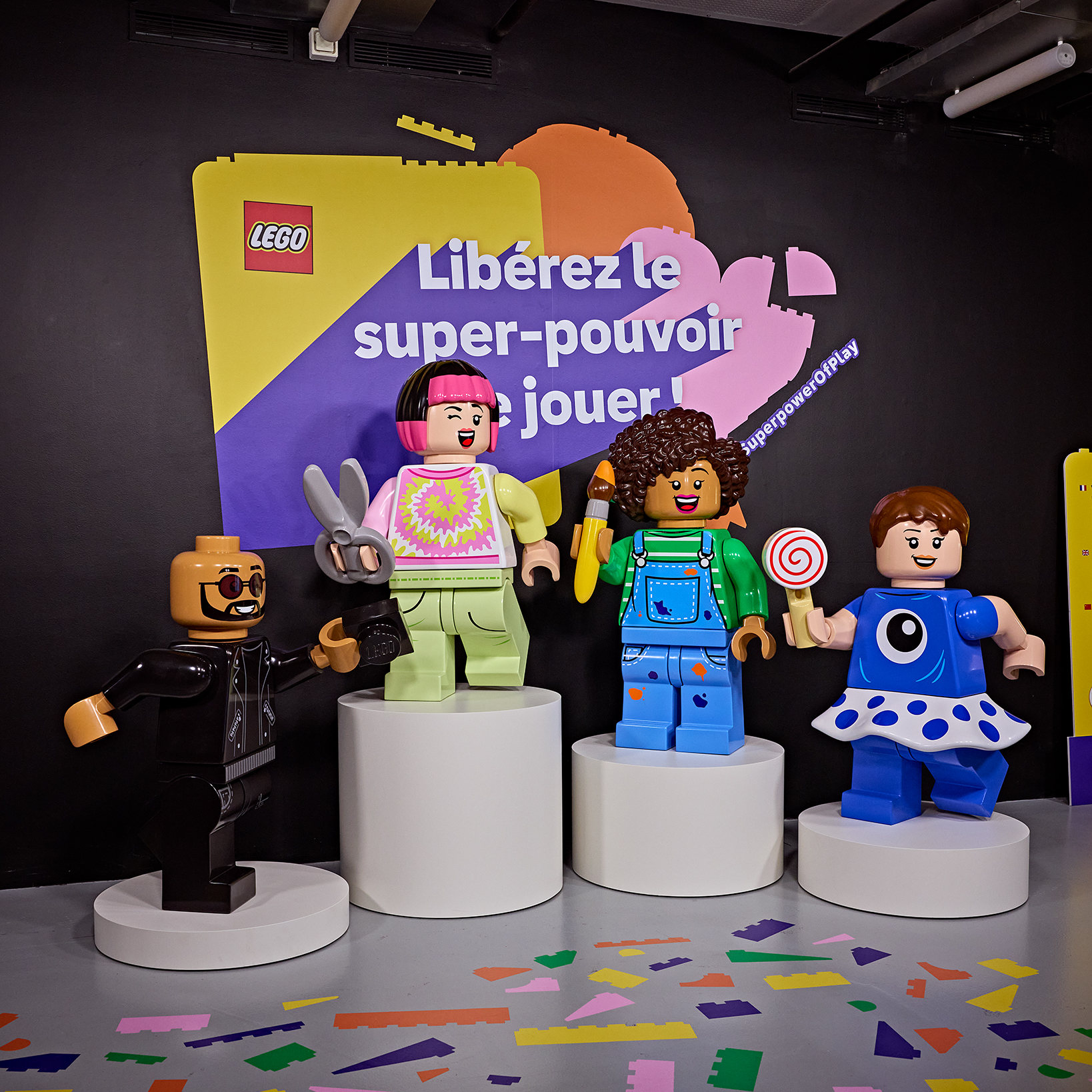
For decades, Lego was a toy rooted in post-war European exceptionalism, offering up pat, clichéd takes on other cultures and historical moments, as well as an idealised, utopian view of families, careers, cities, etc. Superpower Studios is an explicit open invitation to find the beauty and importance of play outside of these narrow, predefined lanes. It’s a task mirrored by other activations around the world, in China, Hungary, Germany, Japan and elsewhere, cementing the cultural importance of play within the city. ‘Kids are the core of what we do – we want to inspire and engage them,’ Akuya concludes.
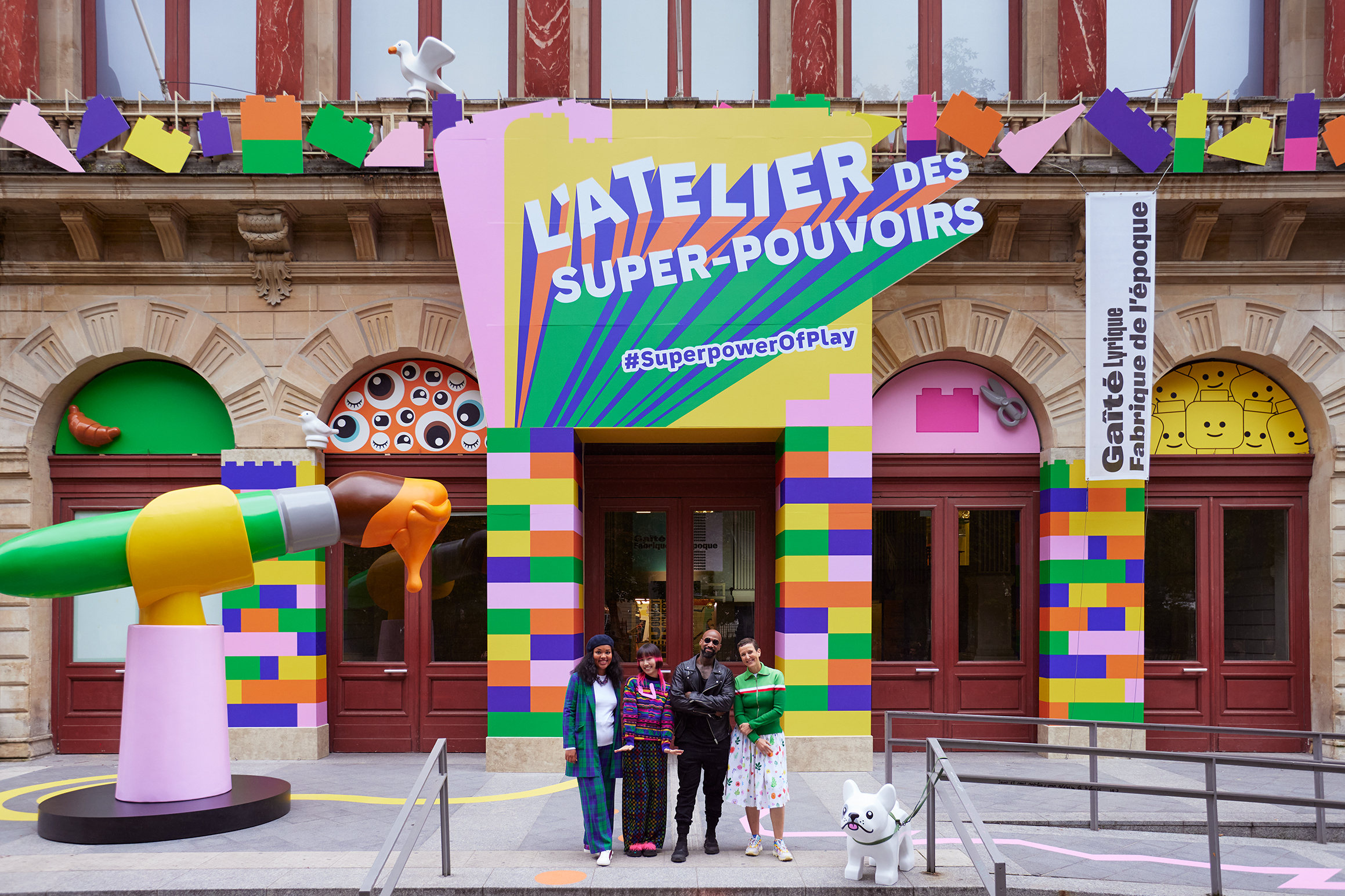
It's a shame that Superpower Studios is such a fleeting experience – a few more weeks would have opened up the world of play to hundreds more. There are also precious few places for adults to sit and just watch their children dive into the bins of different coloured bricks, as the rooms echo to that very distinctive rattle. Despite these quibbles, Superpower Studios offers up a welcome balance of culture and creativity.
Lego Superpower Studios, from Wednesday 11 – Monday 16 September 2024, La Gaîté Lyrique, Paris, free tickets available online here, Gaite-Lyrique.net, Lego.com
Sarah Andelman, JustanIdea.com
Chen Fenwan, ChenFenwan.com, @ChenFenwan
Aurélia Durand, Aurelia-Studio.com, @4ur3lia
Ekow Nimako, EkowNimako.com, @EkowNimako







